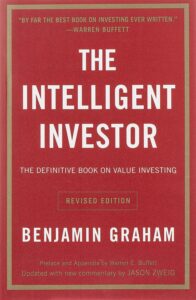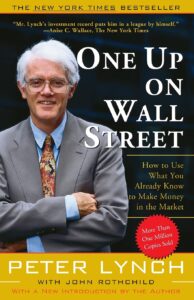Bridging AI Precision with Timeless Wisdom:
Your Finance and Investment Library Awaits
At the heart of our technological prowess, we recognize that while AI can compute, predict, and analyze stock market trends, there's invaluable wisdom in the pages of both classic financial literature and contemporary investment research.
Staying abreast of the latest financial and investment findings is crucial, but so is revering the foundational knowledge that has shaped economic and stock market thought for decades.
Delve deep into the intricate world of finance and investing with the curated selection of books below, handpicked not just by our algorithms but with a keen understanding of the human quest for financial and investment knowledge.
Journey from fundamental principles to advanced strategies in stocks and beyond. Whether you want to understand personal financial planning, grasp the psychology behind investment decisions, absorb the history that crafted economic terrains, dig into the tales of corporate titans, or explore the innovative trends forecasting the future of money and the stock market – this collection is your resource.
Featuring seminal works from stalwarts like Benjamin Graham, a pioneer in the world of stocks and investing, alongside modern maestros such as Michael Lewis and thought leaders like Yuval Noah Harari, each book promises insights that computers alone can't decipher. For while AI can process stock data, it's the human touch, experience, and introspection that bring true comprehension.
Embark on this literary expedition and find a blend of age-old wisdom with futuristic visions about the stock market and more. With our collection, you're not just reading; you're preparing for a financially astute future, melding the best of technology with the timeless lessons of the past.
The Best Finance Books of All Time
Table of contents:
- “The Intelligent Investor” by Benjamin Graham
- “Common Stocks and Uncommon Profits” by Philip A. Fisher
- “A Random Walk Down Wall Street” by Burton G. Malkiel
- “One Up On Wall Street: How To Use What You Already Know To Make Money In The Market” by Peter Lynch
- “Thinking, Fast and Slow” by Daniel Kahneman
- “Nudge: Improving Decisions About Health, Wealth, and Happiness” by Richard H. Thaler & Cass R. Sunstein
- “Misbehaving: The Making of Behavioral Economics” by Richard H. Thaler
- “The Great Crash 1929” by John Kenneth Galbraith
- “Lords of Finance: The Bankers Who Broke the World” by Liaquat Ahamed
- “The Ascent of Money: A Financial History of the World” by Niall Ferguson
- “Rich Dad Poor Dad” by Robert T. Kiyosaki
- “The Total Money Makeover” by Dave Ramsey
- “Your Money or Your Life” by Vicki Robin & Joe Dominguez
Corporate Stories & Biographies:
- “Barbarians at the Gate: The Fall of RJR Nabisco” by Bryan Burrough & John Helyar
- “The Snowball: Warren Buffett and the Business of Life” by Alice Schroeder
- “Security Analysis” by Benjamin Graham & David L. Dodd
- “Fooled by Randomness: The Hidden Role of Chance in Life and in the Markets” by Nassim Nicholas Taleb
Financial Innovation & Future:
- “The Big Short: Inside the Doomsday Machine” by Michael Lewis
- “Sapiens: A Brief History of Humankind” by Yuval Noah Harari
- “Flash Boys: A Wall Street Revolt” by Michael Lewis
Investing:
Together, these great books provide a comprehensive overview of different investment philosophies and strategies, emphasizing the importance of thorough research, long-term perspective, and the unpredictable nature of the market in the short term.
“The Intelligent Investor” by Benjamin Graham:
Overview: Benjamin Graham, known as the father of value investing, offers profound insights into the process of value investing in stocks and bonds. The book emphasizes the principles of analyzing businesses, not just stocks, and investing with a margin of safety.
Key Takeaways: Graham introduces the idea of “Mr. Market” as an erratic individual who offers investment opportunities daily, sometimes at favorable prices and other times not. Investors are advised to act not on the mood of Mr. Market but on sound business judgment. The book differentiates between the “enterprising” and “defensive” investor, providing guidance for both based on their level of commitment and expertise.
Get your copy here.
“Common Stocks and Uncommon Profits” by Philip A. Fisher:
Overview: Philip A. Fisher, another giant in the investment world, delves deep into the world of growth investing. Fisher provides a qualitative approach to evaluating potential investments, focusing more on the company's management, industry position, and potential for innovation rather than just financial metrics.
Key Takeaways: Fisher lists fifteen points to look for in a common stock, from the company’s services/products to its competitive edge and profit margins. He stresses the importance of a long-term investment horizon and the value of scuttlebutt or seeking information from competitors, customers, and other stakeholders to gain insights.
Get your copy here.
“A Random Walk Down Wall Street” by Burton G. Malkiel:
Overview: Burton G. Malkiel critically evaluates a range of investment strategies and financial bubbles through history. He makes the case that the stock market is largely unpredictable in the short term, advocating for a long-term, buy-and-hold strategy.
Key Takeaways: Malkiel introduces the “random walk hypothesis,” suggesting that stock prices move unpredictably and that it is nearly impossible to consistently outperform the market average over the long run.
The book discusses various forms of market analysis, from technical to fundamental, and introduces readers to modern portfolio theory, emphasizing the importance of diversification and asset allocation.
“One Up On Wall Street: How To Use What You Already Know To Make Money In The Market” by Peter Lynch
Overview: Peter Lynch, the legendary portfolio manager of the Magellan Fund at Fidelity Investments, offers insights into his approach to investing. He emphasizes the value of individual investors' knowledge and encourages them to use what they know from their everyday lives to identify potentially successful companies before professionals do.
Key Takeaways: Lynch divides stocks into various categories such as “stalwarts,” “cyclicals,” and “fast growers,” guiding readers on how to recognize and approach each. He famously advocates investing in what you know, suggesting that observations in everyday life can be the first step to discovering valuable investment opportunities. He also cautions against being influenced by market predictions and stresses the importance of research and understanding a company's fundamentals.
Behavioral Finance:
These behavioral finance books offer profound insights into how humans make decisions, often in irrational ways that deviate from traditional economic theories. By understanding these psychological factors, investors and financial professionals can better navigate the complex world of finance, recognizing where emotions or biases may be steering them away from optimal decisions.
“Thinking, Fast and Slow” by Daniel Kahneman:
Overview: Nobel laureate Daniel Kahneman, a pioneering figure in the field of behavioral economics, explores the intricacies of human decision-making. He presents a dichotomy between two modes of thought: “System 1,” which is fast and intuitive, and “System 2,” which is deliberate and logical.
Key Takeaways: Kahneman delves into various cognitive biases and heuristics that can skew judgment. He discusses concepts such as prospect theory, which challenges traditional economic notions by demonstrating how people make decisions based on potential gains or losses relative to a specific reference point, rather than absolute outcomes. For investors, understanding these biases is crucial as they can influence financial decisions, sometimes leading to sub-optimal results.
Overview: Thaler and Sunstein explore the concept of “libertarian paternalism” and how subtle changes in the way choices are presented can “nudge” individuals toward better decisions without restricting their freedom of choice.
Key Takeaways: The authors demonstrate that the structure and framing of choices can significantly influence outcomes, from retirement savings rates to organ donation decisions. They introduce the concept of “choice architecture,” emphasizing the responsibility of those who design decision-making contexts. For financial decision-makers, understanding how to properly frame choices can lead to more beneficial outcomes, both for themselves and for those they advise or influence.
Get your copy here.
“Misbehaving: The Making of Behavioral Economics” by Richard H. Thaler: A fascinating exploration of the inception and evolution of behavioral economics. Thaler, a Nobel laureate, delves into how human psychology deviates from traditional economic theory and the impact of these deviations on markets.
Overview: Richard H. Thaler, one of the founding fathers of behavioral economics, takes readers on a journey
through the development of a field that has shifted the way we think about economics. He breaks down complex theories into relatable anecdotes and real-world examples, demonstrating how irrational human behavior often conflicts with economic models based on rational actors.
Key Takeaways: Thaler addresses the consistent patterns of irrationality observed in human decision-making and how they often lead to suboptimal outcomes. He introduces concepts such as “mental accounting,” “loss aversion,” and “endowment effect,” illustrating the quirks in human psychology that can influence financial and economic decisions. Throughout the book, Thaler emphasizes the importance of considering human behavior when designing economic policies and strategies. His work underscores the notion that understanding the human element is crucial in predicting and guiding economic outcomes more accurately.
History & Macroeconomics:
All three books shed light on tumultuous periods in economic history, offering insights into how individual decisions, combined with broader societal trends, can have far-reaching and often devastating consequences. Understanding this history is crucial, not only for economists and policymakers but for anyone looking to grasp the intricate interplay of finance, politics, and society on a global scale.
“The Great Crash 1929” by John Kenneth Galbraith:
Overview: John Kenneth Galbraith, a renowned economist, gives a detailed account of the events leading up to the Wall Street Crash of 1929. Galbraith delves deep into the speculative excesses, misguided optimism, and flawed financial structures of the 1920s that set the stage for one of the worst economic disasters in history.
Key Takeaways: Galbraith paints a picture of an economy blinded by prosperity, where the belief in perpetual growth overshadowed clear warning signs. He underscores the role of poor regulation, rampant speculation, and a false sense of invincibility in creating an economic bubble. The lessons are timeless, emphasizing the dangers of unchecked financial euphoria and the cyclical nature of markets.
“Lords of Finance: The Bankers Who Broke the World” by Liaquat Ahamed:
Overview: In this Pulitzer Prize-winning work, Ahamed gives a biographical account of the four central bankers of the world's most powerful countries during the interwar period: Montagu Norman of the Bank of England, Emile Moreau of the Banque de France, Hjalmar Schacht of the Reichsbank, and Benjamin Strong of the Federal Reserve Bank of New York. These figures played pivotal roles in the economic decisions that led to the Great Depression.
Key Takeaways: Ahamed chronicles the post-World War I era, a time rife with economic imbalances, flawed gold standard policies, and nationalistic tendencies. The book illustrates how the interplay of personalities, national interests, and misconceptions, combined with the scars of the First World War, resulted in decisions that exacerbated economic crises.
It's a deep dive into the dangers of economic dogma, the heavy responsibilities of financial leadership, and the complexities of international monetary policies.
“The Ascent of Money: A Financial History of the World” by Niall Ferguson:
Ferguson takes readers on a historical journey through the evolution of money and financial systems. From the ancient civilization of Mesopotamia to the modern digital age, the book provides a comprehensive look at the financial history of the world.
Overview: Historian Niall Ferguson crafts a compelling narrative of how money, in its various forms, has been the driving force behind the rise and fall of empires, the making of wars, and the creation of global economic systems. Ferguson's storytelling combines deep research with an accessible writing style, revealing the intertwined relationship between finance and the broader currents of history.
Key Takeaways: Ferguson examines key moments and innovations in financial history, such as the birth of banking in Renaissance Italy, the origins of the bond market, the consequences of the gold standard, and the recent financial crises of the 21st century. He highlights the continuous cycle of financial boom and bust, providing insights into the socioeconomic implications of financial decisions made over the centuries. Furthermore, Ferguson explores the role of finance in shaping geopolitics, illustrating how economic mechanisms, from lending to speculation, have direct impacts on global power dynamics. Through this historical lens, readers gain a profound understanding of how the financial world we know today was shaped and the forces that could determine its future trajectory.
Personal Finance:
Each of these books offers a unique perspective on personal finance, with underlying themes of living intentionally, understanding the value of money in the context of life, and building a secure financial foundation.
“Rich Dad Poor Dad” by Robert T. Kiyosaki
Overview: Robert Kiyosaki contrasts the mindset and financial philosophies of his two “dads” – his biological father (Poor Dad) and the father of his childhood best friend (Rich Dad).
Key Takeaways: This book introduces readers to the importance of financial education, the pitfalls of traditional employment, and the value of investing in assets.
Kiyosaki emphasizes that it's not just about earning money but understanding how to make money work for you. Readers are encouraged to challenge conventional beliefs about money, work, and life.
“The Total Money Makeover” by Dave Ramsey:
Overview: Dave Ramsey, a personal finance guru, provides a step-by-step plan to get out of debt, save money, and build wealth. He combines practical advice with motivational stories from real people.
Key Takeaways: Ramsey introduces the “Baby Steps” – a series of seven actionable steps ranging from saving for an emergency fund to building wealth and giving. He promotes a debt-averse lifestyle, emphasizing the psychological and financial freedom that comes with being debt-free. The book also highlights the value of budgeting, living below one's means, and the power of compound interest.
Get your copy here.
“Your Money or Your Life” by Vicki Robin & Joe Dominguez:
Overview: This isn't just a book about managing money; it's about redefining the relationship one has with money. Robin and Dominguez offer a nine-step program to transform one's relationship with money and achieve financial independence.
Key Takeaways: The program encourages readers to view money as something exchanged for life energy. It introduces tools and techniques for decreasing expenses, getting out of debt, saving money, and re-evaluating priorities. The book also presents an eye-opening perspective on consumerism and its impact on our lives and encourages a move towards a more conscious and purpose-driven relationship with money and spending.
Corporate Stories & Biographies:
Together, these books provide a mix of corporate drama and personal introspection, offering readers a glimpse into the worlds of high-stakes deals and the minds of financial titans. Both stories, though different in their focus and tone, underscore the myriad factors — both personal and professional — that drive decisions in the business world.
“Barbarians at the Gate: The Fall of RJR Nabisco” by Bryan Burrough & John Helyar:
Overview: Journalists Bryan Burrough and John Helyar dive deep into the intense bidding war for RJR Nabisco, a conglomerate formed by the merger of R.J. Reynolds Tobacco and Nabisco Brands. This narrative, based on a series of Wall Street Journal articles, unfolds the dramatic events leading up to the then-largest leveraged buyout in history.
Key Takeaways: The book paints a vivid picture of corporate greed, ego battles, and backroom dealings. It showcases the roles played by the management of RJR Nabisco, investment bankers, and other key figures. The storytelling offers readers an inside look into the world of high-stakes corporate buyouts, revealing the lengths to which individuals will go in the name of ambition and wealth.
“The Snowball: Warren Buffett and the Business of Life” by Alice Schroeder:
Overview: As the authorized biography of Warren Buffett, one of the most successful investors of all time, this book offers a comprehensive look into Buffett's life, from his early childhood to his meteoric rise in the world of finance. Alice Schroeder, with unparalleled access to Buffett, paints an intimate and detailed portrait of the “Oracle of Omaha.”
Key Takeaways: Readers gain insights into Buffett's investment strategies and the principles that guide his decisions. More than just an investment primer, the book delves into his personal life, relationships, and the events that shaped him. Schroeder captures Buffett's philosophy of value investing, his emphasis on integrity, and his knack for understanding businesses and markets. The narrative underscores the blend of intelligence, discipline, and intuition that has made Buffett an icon in the world of finance.
Advanced Investing & Finance:
These books, while diving deep into advanced financial concepts, also provide a philosophical perspective on investing. They challenge readers to critically evaluate their assumptions, recognize the limits of their knowledge, and approach investing with both rigor and humility. Both are invaluable reads for those seeking a more profound understanding of finance and the complexities of decision-making in uncertain environments.
“Security Analysis” by Benjamin Graham & David L. Dodd:
Overview: Widely regarded as the definitive text on value investing, “Security Analysis” is a deep dive into the rigorous analysis of securities. Written by Benjamin Graham, the father of value investing, and David Dodd, this book serves as an exhaustive guide for investors who aim to understand the intrinsic value of securities beyond their market price.
Key Takeaways: Graham and Dodd advocate for a detailed and methodical approach to investing, emphasizing the need to look at a company's financial statements, assets, earnings, and overall financial health. They introduce concepts like margin of safety, which suggests that investors should only buy securities when they are priced significantly below their intrinsic value. The book is an essential read for those who want to move beyond surface-level metrics and develop a deeper understanding of financial analysis.
Overview: Nassim Nicholas Taleb, a former trader turned scholar and essayist, delves into the often-underestimated role of randomness, luck, and chance in various aspects of life, including the financial markets. The book challenges conventional wisdom and exposes the limitations of human knowledge.
Key Takeaways: Taleb introduces the idea that much of what we attribute to skill in life and investing might just be luck. He cautions against the narrative fallacy, where people create stories to make sense of events, often overlooking the role of randomness. The book also discusses survivorship bias, where we tend to focus on the winners and ignore the multitude of unseen losers. For investors, it's a reminder of the unpredictability of markets and the dangers of overconfidence.
Financial Innovation & Future:
Both of these books, while spanning different genres, explore the intersections of innovation, trust, and societal structures. They serve as cautionary tales and enlightening accounts, challenging readers to think deeply about the role of money, financial systems, and innovation in shaping human history and our shared future.
“The Big Short: Inside the Doomsday Machine” by Michael Lewis:
Overview: Michael Lewis, known for his engaging storytelling, recounts the lead-up to the 2008 financial crisis, focusing on a group of outsiders and mavericks who predicted the housing market crash. Lewis explains the creation and rise of subprime mortgage bonds and other complex financial instruments that played a central role in the crisis.
Key Takeaways: Through vivid character portraits, Lewis offers a window into the world of finance where greed, lack of oversight, and complex financial innovations combined to create a bubble. The story underlines the dangers of herd mentality in the financial industry and the catastrophic consequences when unchecked innovations go awry. For readers, it's a stark reminder of the need for transparency, understanding, and skepticism in the realm of financial products and strategies.
“Sapiens: A Brief History of Humankind” by Yuval Noah Harari:
Overview: While “Sapiens” traverses the vast history of humankind, from the emergence of Homo sapiens in the Stone Age to the 21st century, a significant portion delves into the socio-cultural evolution of money. Harari examines how money, initially a system of trust, transformed human societies, enabling large-scale cooperation and giving rise to complex civilizations.
Key Takeaways: Harari argues that money is essentially a mental construct, a shared belief in the value of an otherwise valueless item. This trust in “fictive currency” allowed humans to create large-scale trade networks, transcending the limitations of barter systems and familial trust. The book touches upon the evolution from tangible currency (like gold coins) to credit systems and digital money. In exploring the story of money, Harari offers insights into its future, especially in an age of digital currencies and potential shifts in global trust systems.




























